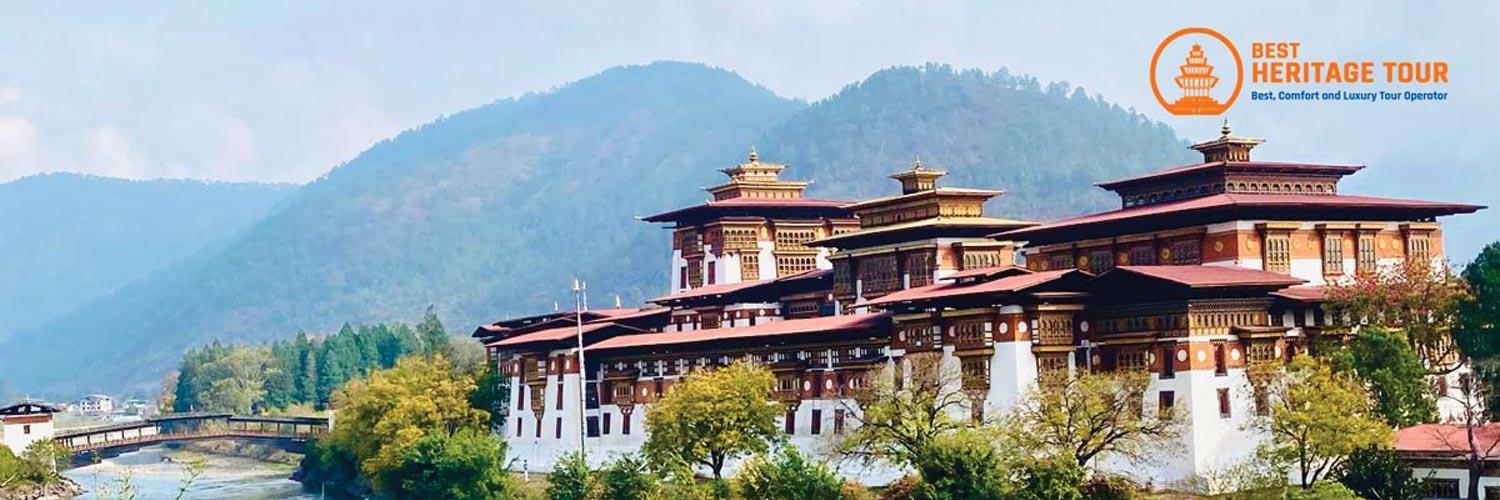Bhutan, the enchanting Himalayan kingdom, is a land deeply rooted in tradition, culture, and spirituality. From vibrant festivals to ancient customs, Bhutanese heritage is a mesmerizing blend of Buddhism, folklore, and community celebrations. Whether you're planning a visit or simply curious, here's a deep dive into Bhutan's festivals, culture, and traditions.
1. Bhutanese Festivals: A Spectacle of Colors and Devotion
Bhutanese festivals, known as Tsechus, are an integral part of the country's cultural fabric. These grand celebrations, held in various monasteries and dzongs (fortresses), bring together locals and tourists to witness the beauty of Bhutanese spirituality and traditions. Tsechus are dedicated to Guru Rinpoche, the saint who introduced Buddhism to Bhutan, and feature mask dances, religious performances, and blessings from monks.
-
Paro Tsechu- One of the biggest festivals in Bhutan, celebrated in Paro Dzong with mesmerizing mask dances and religious rituals. Thousands of people gather to witness the unfurling of the giant Thangka, a sacred religious painting believed to bring blessings.
-
Thimphu Tsechu- The capital city’s grand festival showcases sacred Cham dances, prayers, and storytelling through performances. Locals dress in their finest traditional attire and participate in prayer ceremonies.
-
Jambay Lhakhang Drup- Famous for its fire dance and the unveiling of the sacred thongdrel (large religious scroll painting). This festival is held at one of the oldest temples in Bhutan, adding to its significance.
-
Punakha Drubchen- A festival commemorating Bhutanese warriors who defended the country from Tibetan invasions. This event features reenactments of ancient battles and highlights Bhutan’s deep historical roots.
-
Haa Summer Festival- A lesser-known but equally fascinating celebration that showcases the nomadic lifestyle, traditional sports, and food culture of the Haa Valley.
2. Bhutanese Culture: A Unique Blend of Spirituality and Simplicity
Bhutan’s culture is deeply influenced by Buddhism, which is evident in its monasteries, traditional lifestyle, and values of harmony. Bhutanese people live in close connection with nature and uphold a strong sense of community. Respect for elders, religious devotion, and sustainable living are core values that define Bhutanese society.
-
Dzongs and Monasteries- Architectural marvels like Tiger’s Nest Monastery (Taktsang Monastery) symbolize Bhutan's spiritual depth. These structures serve as administrative centers as well as places of worship.
-
Traditional Bhutanese Attire- Men wear Gho, and women wear Kira, both made of handwoven textiles. Wearing traditional attire is mandatory in government offices, schools, and religious ceremonies, preserving Bhutan’s cultural identity.
-
Gross National Happiness (GNH) - Bhutan’s unique philosophy that prioritizes happiness over material wealth. Unlike other nations that focus on GDP, Bhutan measures success based on well-being, culture, and sustainability.
-
Religious Festivals and Rituals- Offerings, prayers, and butter lamp ceremonies are common practices in daily life. Many Bhutanese homes have altars where families gather to pray and seek blessings.
3. Bhutanese Traditions: A Legacy of Ancient Customs
Bhutan’s traditions have been preserved for centuries, maintaining a strong connection between the past and present. Each village and region has its own unique customs that continue to be passed down through generations.
-
Archery- The National Sport- Archery tournaments are a vital part of Bhutanese culture, often held during festivals and gatherings. Competitions are lively, accompanied by singing, dancing, and humorous taunts.
-
Traditional Bhutanese Cuisine- Spicy dishes like Ema Datshi (chili and cheese), Momo (dumplings), Suja (butter tea), and Red Rice are local favorites. Bhutanese cuisine is known for its bold flavors and use of organic ingredients.
-
Bhutanese Houses and Architecture- Intricately designed wooden houses with ornate windows reflect Bhutanese craftsmanship. The traditional houses are built without nails and decorated with symbolic motifs.
-
Marriage and Family Traditions- Bhutanese weddings involve religious ceremonies, prayers, and community participation. Many marriages are arranged by families, but love marriages are also common in modern Bhutan.
-
Funeral Rites and Beliefs- Death is considered a transition rather than an end, and elaborate rituals ensure a smooth passage to the next life. Sky burials, cremations, and water burials are some of the funeral practices in Bhutan.
4. Why You Should Experience Bhutan’s Festivals and Culture
A trip to Bhutan is incomplete without experiencing its rich culture, vibrant festivals, and deep-rooted traditions. Whether you’re exploring the grand dzongs, participating in Tsechus, or indulging in local cuisine, Bhutan offers a unique cultural experience like no other. The serene landscape, combined with the warm hospitality of the Bhutanese people, makes it an ideal destination for travelers seeking a meaningful journey.
If you’re planning a visit, make sure to time your trip during one of Bhutan’s famous festivals to witness the spiritual energy, traditional dances, and cultural magnificence firsthand. You’ll get a glimpse into the kingdom’s deep-seated customs and create unforgettable memories.
Best Time to Visit Bhutan for Cultural Experiences
-
Spring (March-May): Ideal for Paro Tsechu and blooming rhododendrons.
-
Autumn (September-November): Best season for Thimphu Tsechu and Clear Mountain views.
-
Winter (December-February): Offers a quieter experience with traditional winter festivities.
-
Summer (June-August): Perfect for lush green landscapes and lesser-known festivals like the Haa Summer Festival.
Final Thoughts
Bhutan is more than just a travel destination; it is a living, breathing heritage of festivals, culture, and traditions. Every aspect of Bhutanese life, from its Buddhist roots to its national dress and celebrations, showcases the country's deep cultural identity. Visiting Bhutan means immersing yourself in an experience that is spiritually enriching, visually stunning, and culturally immersive.
Are you ready to explore the Land of the Thunder Dragon? Plan your Bhutan adventure today with Best Heritage Tour and step into a world of timeless traditions and extraordinary celebrations!
Contact Best Heritage Tour Company
Visit Best Heritage Tour Pvt.Ltd. official website to gather information about BHT services.
Look for contact details (Phone number/Viber /What’s App: +9779851149197 / +9779810043046),
Email: bestheritagetour@gmail.com/ info@bestheritagetour.com to get in touch with them directly.
Author: Best Heritage Tour
Date: 27th March, 2025

